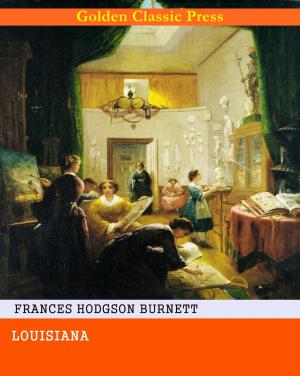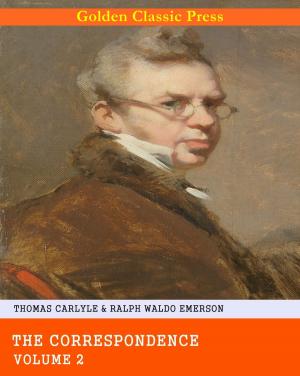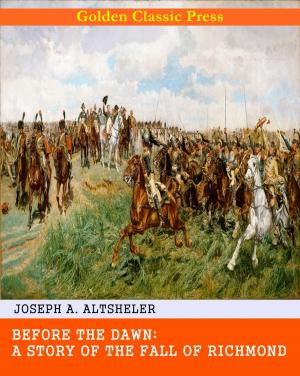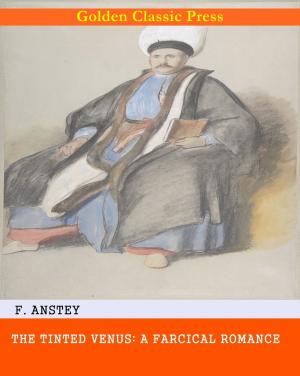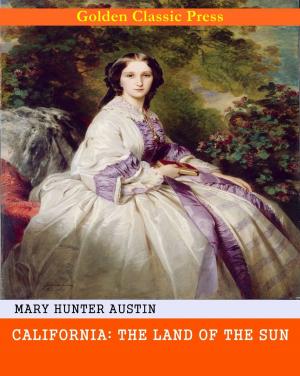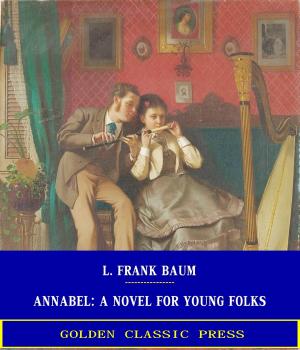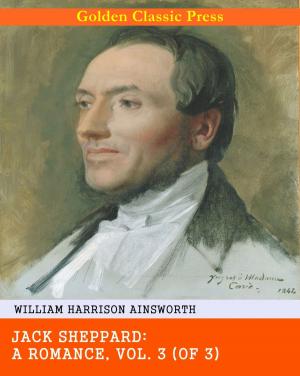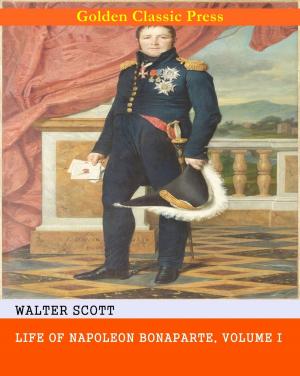| Author: | William Harrison Ainsworth | ISBN: | 1230002953083 |
| Publisher: | GOLDEN CLASSIC PRESS | Publication: | November 30, 2018 |
| Imprint: | Language: | English |
| Author: | William Harrison Ainsworth |
| ISBN: | 1230002953083 |
| Publisher: | GOLDEN CLASSIC PRESS |
| Publication: | November 30, 2018 |
| Imprint: | |
| Language: | English |
*** Original and Unabridged Content. Made available by GOLDEN CLASSIC PRESS***
Synopsis:
Chetwynd, only son of Mr. Hugh Calverley, a retired Liverpool merchant, residing at Ouselcroft, in Cheshire, was somewhat singularly circumstanced, as will have been surmised from the conversation just recountedÑbut he had only himself to blame.Rather more than a year agoÑwhen he was just of ageÑhe had fallen in love with his father's ward, Teresa Mildmay, a young lady of great personal attractions, but very small fortuneÑhad proposed to her, and been accepted.Teresa had lost both her parents. Her mother, Lady Eleanor Mildmay, daughter of Lord Rockingham, died when she was quite a child. Her father, General Mildmay, an Indian officer of distinction, was one of Mr. Calverley's most intimate friends, and hence it chanced that the latter was appointed Teresa's guardian.General Mildmay's demise occurred at Cheltenham about two years prior to the commencement of our story. By her guardian's desire, Teresa then came to reside with his daughter at Ouselcroft. Though Mildred was two or three years younger than her friend, and they were very dissimilar in character, a sisterly affection subsisted between them. Originating when they were at school together at Brighton, their friendship had never since been disturbed. To Mildred, therefore, it was a source of the greatest satisfaction when Teresa took up her abode with them.The two girls differed as much in personal appearance as in character. Both were remarkably goodlooking. Teresa Mildmay had a very striking countenance. Her features were classical in mould, her complexion dark, her eyes magnificent, and arched over by thick black brows. Her tresses were black as jet, luxuriant, and of a silky texture, and were always dressed in a manner that best suited her. Her figure was lofty and beautifully proportioned. The expression of her face was decidedly proudÑtoo proud to be altogether agreeable. Nevertheless, she was extremely admired.Teresa possessed great good sense and good judgment, and was looked upon by her guardian as a model of prudence and propriety. As he frequently consulted her upon household matters, and, indeed, asked her advice upon many other points, she naturally acquired considerable influence over him.Chetwynd, only son of Mr. Hugh Calverley, a retired Liverpool merchant, residing at Ouselcroft, in Cheshire, was somewhat singularly circumstanced, as will have been surmised from the conversation just recountedÑbut he had only himself to blame.Rather more than a year agoÑwhen he was just of ageÑhe had fallen in love with his father's ward, Teresa Mildmay, a young lady of great personal attractions, but very small fortuneÑhad proposed to her, and been accepted.Teresa had lost both her parents. Her mother, Lady Eleanor Mildmay, daughter of Lord Rockingham, died when she was quite a child. Her father, General Mildmay, an Indian officer of distinction, was one of Mr. Calverley's most intimate friends, and hence it chanced that the latter was appointed Teresa's guardian.General Mildmay's demise occurred at Cheltenham about two years prior to the commencement of our story. By her guardian's desire, Teresa then came to reside with his daughter at Ouselcroft. Though Mildred was two or three years younger than her friend, and they were very dissimilar in character, a sisterly affection subsisted between them. Originating when they were at school together at Brighton, their friendship had never since been disturbed. To Mildred, therefore, it was a source of the greatest satisfaction when Teresa took up her abode with them.The two girls differed as much in personal appearance as in character. Both were remarkably goodlooking. Teresa Mildmay had a very striking countenance. Her features were classical in mould, her complexion dark, her eyes magnificent, and arched over by thick black brows. Her tresses were black as jet, luxuriant, and of a silky texture, and were always dressed in a manner that best suited her. Her figure was lofty and beautifully proportioned. The expression of her face was decidedly proudÑtoo proud to be altogether agreeable. Nevertheless, she was extremely admired. Teresa possessed great good sense and good judgment, and was looked upon by her guardian as a model of prudence and propriety. As he frequently consulted her upon household matters, and, indeed, asked her advice upon many other points, she naturally acquired considerable influence over him.
*** Original and Unabridged Content. Made available by GOLDEN CLASSIC PRESS***
Synopsis:
Chetwynd, only son of Mr. Hugh Calverley, a retired Liverpool merchant, residing at Ouselcroft, in Cheshire, was somewhat singularly circumstanced, as will have been surmised from the conversation just recountedÑbut he had only himself to blame.Rather more than a year agoÑwhen he was just of ageÑhe had fallen in love with his father's ward, Teresa Mildmay, a young lady of great personal attractions, but very small fortuneÑhad proposed to her, and been accepted.Teresa had lost both her parents. Her mother, Lady Eleanor Mildmay, daughter of Lord Rockingham, died when she was quite a child. Her father, General Mildmay, an Indian officer of distinction, was one of Mr. Calverley's most intimate friends, and hence it chanced that the latter was appointed Teresa's guardian.General Mildmay's demise occurred at Cheltenham about two years prior to the commencement of our story. By her guardian's desire, Teresa then came to reside with his daughter at Ouselcroft. Though Mildred was two or three years younger than her friend, and they were very dissimilar in character, a sisterly affection subsisted between them. Originating when they were at school together at Brighton, their friendship had never since been disturbed. To Mildred, therefore, it was a source of the greatest satisfaction when Teresa took up her abode with them.The two girls differed as much in personal appearance as in character. Both were remarkably goodlooking. Teresa Mildmay had a very striking countenance. Her features were classical in mould, her complexion dark, her eyes magnificent, and arched over by thick black brows. Her tresses were black as jet, luxuriant, and of a silky texture, and were always dressed in a manner that best suited her. Her figure was lofty and beautifully proportioned. The expression of her face was decidedly proudÑtoo proud to be altogether agreeable. Nevertheless, she was extremely admired.Teresa possessed great good sense and good judgment, and was looked upon by her guardian as a model of prudence and propriety. As he frequently consulted her upon household matters, and, indeed, asked her advice upon many other points, she naturally acquired considerable influence over him.Chetwynd, only son of Mr. Hugh Calverley, a retired Liverpool merchant, residing at Ouselcroft, in Cheshire, was somewhat singularly circumstanced, as will have been surmised from the conversation just recountedÑbut he had only himself to blame.Rather more than a year agoÑwhen he was just of ageÑhe had fallen in love with his father's ward, Teresa Mildmay, a young lady of great personal attractions, but very small fortuneÑhad proposed to her, and been accepted.Teresa had lost both her parents. Her mother, Lady Eleanor Mildmay, daughter of Lord Rockingham, died when she was quite a child. Her father, General Mildmay, an Indian officer of distinction, was one of Mr. Calverley's most intimate friends, and hence it chanced that the latter was appointed Teresa's guardian.General Mildmay's demise occurred at Cheltenham about two years prior to the commencement of our story. By her guardian's desire, Teresa then came to reside with his daughter at Ouselcroft. Though Mildred was two or three years younger than her friend, and they were very dissimilar in character, a sisterly affection subsisted between them. Originating when they were at school together at Brighton, their friendship had never since been disturbed. To Mildred, therefore, it was a source of the greatest satisfaction when Teresa took up her abode with them.The two girls differed as much in personal appearance as in character. Both were remarkably goodlooking. Teresa Mildmay had a very striking countenance. Her features were classical in mould, her complexion dark, her eyes magnificent, and arched over by thick black brows. Her tresses were black as jet, luxuriant, and of a silky texture, and were always dressed in a manner that best suited her. Her figure was lofty and beautifully proportioned. The expression of her face was decidedly proudÑtoo proud to be altogether agreeable. Nevertheless, she was extremely admired. Teresa possessed great good sense and good judgment, and was looked upon by her guardian as a model of prudence and propriety. As he frequently consulted her upon household matters, and, indeed, asked her advice upon many other points, she naturally acquired considerable influence over him.
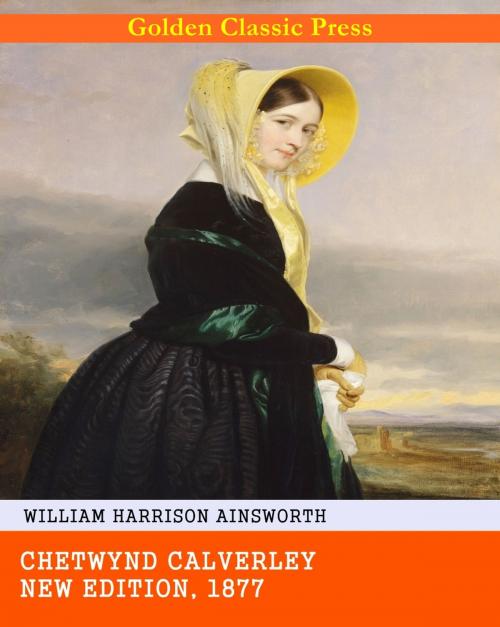
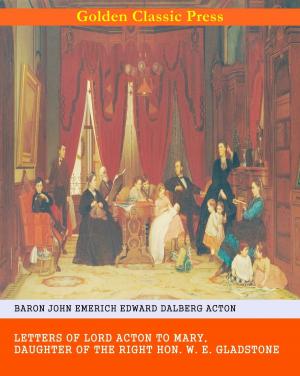

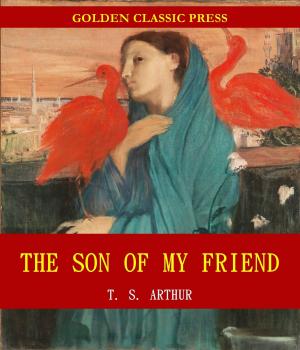


![Cover of the book Rollo's Philosophy [Air] by William Harrison Ainsworth](https://www.kuoky.com/images/2018/november/300x300/1230002937731-KIUf_300x.jpg)
